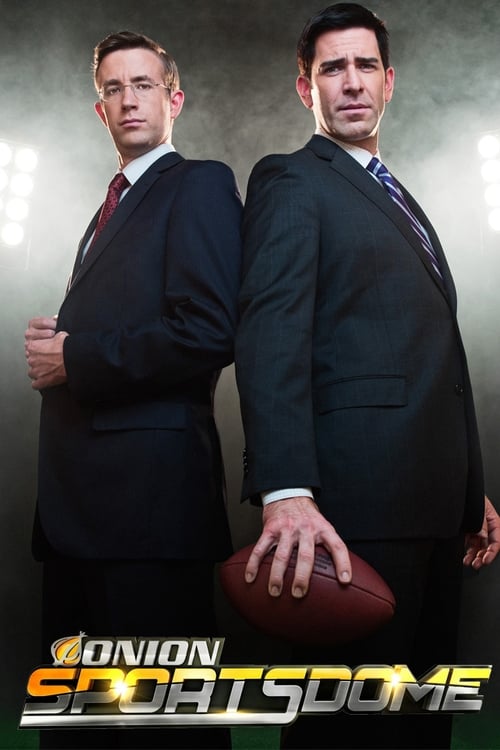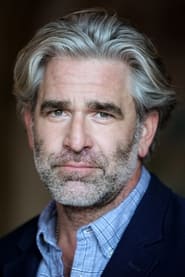
Ask Your Own Question
What is the plot?
Onion SportsDome opens with a satirical take on the world of sports broadcasting, featuring hosts Mark and Jason, who present a variety of absurd sports stories. The episode begins with a segment on a fictional sport called "Extreme Ironing," where competitors iron clothes in extreme locations. The hosts enthusiastically describe the challenges and dangers involved, showcasing clips of participants ironing on cliffs and underwater, emphasizing the ridiculousness of the sport.
As the episode progresses, the hosts shift their focus to a more serious topic: the ethics of performance-enhancing drugs in sports. They introduce a segment featuring a fictional athlete, "Johnny Juice," who has been caught using steroids. The hosts debate the implications of his actions, with Mark taking a more lenient stance, arguing that everyone is doing it, while Jason insists on the importance of fair play. This debate escalates, revealing their differing philosophies on sportsmanship and competition.
The narrative then transitions to a mockumentary-style interview with Johnny Juice himself. He expresses his internal conflict about using steroids, revealing that he felt immense pressure to perform at a high level to support his family. His emotional state is palpable as he discusses the sacrifices he made and the fear of losing his career. The interview is interspersed with clips of his impressive athletic feats, juxtaposed with the fallout from his drug use.
Next, the show introduces a subplot involving a fictional sports league's decision to implement stricter drug testing policies. The league commissioner, portrayed as a bumbling character, struggles to communicate the new rules to the players. This leads to a series of comedic misunderstandings, as players misinterpret the policies, resulting in absurd scenarios where they attempt to hide their drug use in increasingly ridiculous ways.
The episode takes a turn when the hosts decide to stage a live debate between Johnny Juice and a former athlete who advocates for clean sports. The debate is filled with tension, as both sides present their arguments passionately. Johnny's emotional appeal about the pressures athletes face resonates with the audience, while the former athlete's insistence on integrity in sports garners support from the more traditional viewers. The debate culminates in a heated exchange, with both characters revealing their vulnerabilities.
In the final act, the show presents a mock awards ceremony for the "Best Performance Enhancer." The absurdity of the award is highlighted by the over-the-top production values and the ridiculous acceptance speeches from various fictional athletes. The ceremony serves as a commentary on the normalization of drug use in sports, with the hosts playfully mocking the situation while still acknowledging the serious implications.
The episode concludes with a return to the hosts, who reflect on the events of the show. They share their thoughts on the debate and the awards ceremony, emphasizing the ongoing conversation about ethics in sports. The final scene features a humorous twist, as they reveal that they, too, have been using performance enhancers to keep up with the demands of their job, leaving the audience with a final laugh at the absurdity of the entire situation.
What is the ending?
Is there a post-credit scene?
Onion SportsDome, the satirical sports show that aired in 2011, does not feature post-credit scenes in its episodes. The format of the show is structured around a traditional sketch comedy style, with each episode concluding after the main content without additional scenes or content following the credits. The focus remains on delivering sharp, humorous commentary on sports and media, encapsulated within the main segments of the show. Therefore, viewers can expect the episode to wrap up without any additional material after the credits roll.
What are the main character's motivations in the episode 'The Big Game'?
In 'The Big Game', the main character, sports anchor Mark D. Dron, is driven by his desire to deliver the most sensational and outrageous sports news possible. His motivation stems from a need to maintain high ratings for Onion SportsDome, which leads him to exaggerate events and create drama around the game. This internal conflict between journalistic integrity and the pursuit of entertainment creates tension as he navigates the absurdity of the sports world.
How does the character of sports analyst Chet Wiggins evolve throughout the series?
Chet Wiggins starts as a brash and overconfident sports analyst, often making outlandish predictions and comments. As the series progresses, particularly in episodes like 'The Draft', he begins to show vulnerability, revealing his insecurities about his career and the pressure to stay relevant in a rapidly changing sports landscape. This evolution is marked by moments of introspection and a growing awareness of the impact of his words on athletes and fans.
What is the significance of the recurring character, the 'Sports Dome Guy'?
The 'Sports Dome Guy' serves as a comedic foil throughout the series, often appearing in absurd segments that parody sports culture. His character highlights the ridiculousness of certain sports tropes and the lengths to which media will go for entertainment. In episodes like 'The Mascot', he embodies the over-the-top nature of sports fandom, providing a satirical lens through which the audience can reflect on their own sports obsessions.
How does the episode 'The Championship' address the theme of sportsmanship?
In 'The Championship', the episode explores sportsmanship through the rivalry between two teams, culminating in a dramatic final game. The characters grapple with the pressure to win at all costs, leading to unethical decisions and conflicts. The emotional stakes are heightened as players confront their own values, ultimately leading to a moment of redemption where they choose to prioritize respect and camaraderie over victory.
What role does the character of producer Lisa play in shaping the show's narrative?
Producer Lisa is a pivotal character who often acts as the voice of reason amidst the chaos of the sports news environment. Her motivations are rooted in a desire to balance sensationalism with journalistic responsibility. In episodes like 'The Controversy', she challenges the anchors to consider the ethical implications of their reporting, creating tension as she pushes back against their more outrageous ideas. Her character development reflects the struggle between maintaining integrity and the pressures of the entertainment industry.













